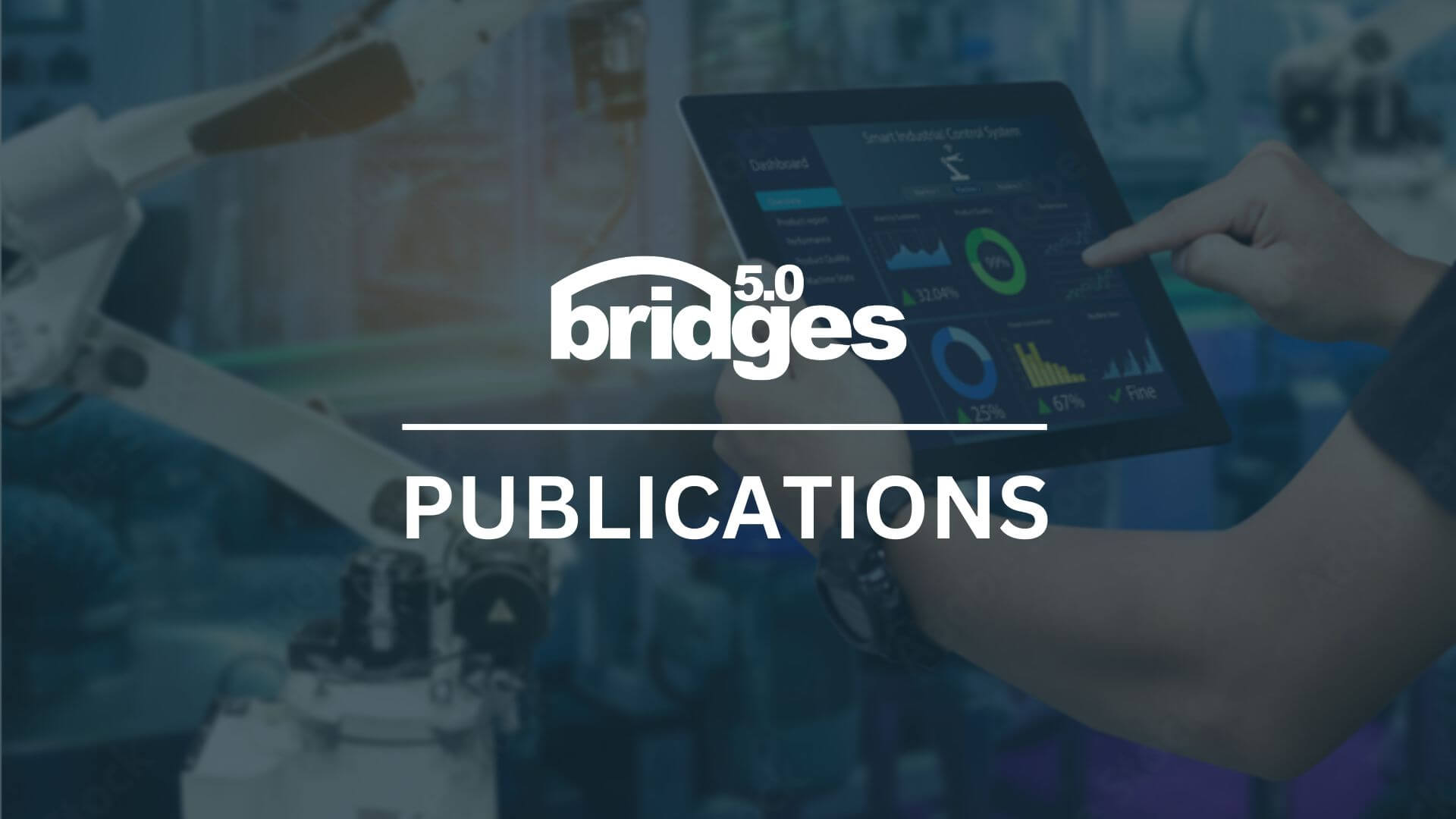
Each edition of our Newsletter will include updates from Workpackage leaders on their work and/or thinking to date. Here is what has happened so far:
Workpackage 1 (Leader: Peter Oeij, TNO)
The purpose of this WP is to mainly develop a Conceptual Framework for Industry 5.0 from M1 to M12.
The broad objectives of WP1 are to:
- Provide conceptual, including operational, clarity to Industry 5.0; Task 1.1
- Engage and familiarise industry and other stakeholders with the concept of Industry 5.0; Task 1.2
- Explore the possibility of developing an industry standard for Industry 5.0, including stakeholder dialogue; Task 1.2
- Use history to inform the development of education & training systems for Industry 5.0. Task 1.3
In the first four months we worked on task 1.1, running from M1 to M4. Tasks 1.2 and 1.3 will be taken up after M4.
Task 1.1 is devoted to the new concept of Industry 5.0 and will lay the theoretical foundations for the BRIDGES 5.0 project. Drawing on a literature review, the team will define Industry 5.0 and its characteristics and explain how this concept differs from Industry 4.0. Crucial terms such as ‘human-centric’ and ‘socio-centric’ industry will also be defined, and the ethical and cultural ramifications will be considered. In addition, the task will consider the social innovation opportunities within Industry 5.0 for the four target groups. The concept will also be situated in current EU and national policy. A glossary of the main associated terminology will be produced. The outcome will be a clarification on the definition and operationalisation of Industry 5.0.
We started during the kick-off meeting in January to get acquainted with each other, and tried to get a good understanding of the work to be done. Follow-up online meetings were scheduled in January, February and March. We started to divide tasks and actions among the partners. At the end of March, we met face-to-face once again in Brussels to discuss our progress.
The first draft of deliverable D1.1 Conceptual Framework Industry 5.0 (planned for M12) was made available during April because the other WPs want to make use of the concept for their own work. You can download it and provide feedback here.
Workpackage 2 (Leader: Nathalie Greenan and Silvia Napolitano)
The CNAM team have launched WP2 (Quantitative Assessment of Skills and Jobs), and especially task 2.1, “Measurement framework and data strategy”, with colleagues from TNO, AIT, UNIBA, UIA and KTU.
The aim is to gather in-depth knowledge on adults and the organisational settings where they work and learn. This task will build a framework to measure uses of emerging technologies, related organisational practices, skills utilisation and skills development. This allows for the analysis of different data sources on the same grounds from a theoretical point of view, and to compare obtained results. The work started with a common literature review and an internal seminar has been set up. Two sessions have been held and two more are planned. The framework will be then translated into a data strategy based on the selection and combination of complementary data sources for other WP2 tasks.
Workpackage 3 (Leader: Jeisson Cardenas, IER)
Although WP3 is planned to start in M6, our team has already taken steps to prepare the necessary data. In fact, we have been proactive in our approach and have begun exploring new avenues to supplement our existing datasets. The TNO team has secured extra funding and has already started testing approaches to analysing major datasets, including Job Digger-data (job vacancy data). Additionally, after a long discussion with CEDEFOP, we have been granted full access to the OVATE database and are currently exploring whether we have the materials necessary for our plans. Members of WP3 have also started to collect online job offers to complement the OVATE database. We are also working closely with other WP3 members to explore additional sources of information, such as Twitter and collective agreements, to analyse Industry 5.0 job requirements and companies’ profiles. M6 will be a ‘flying start’ to the activities.
Workpackage 4 (Leader: Doris Schartinger, AIT)
Although WP4 has not yet begun and does not start until M18, task 4.3 needs some attention already.
Task 4.3 is an activity in which novel indicators around industry 5.0 will be discussed and suggested, with a special focus on:
1) Quality of work environment indicators related to Industry 5.0.
2) Indicators for the analysis of labour market tensions.
3) Indicators on work organisation from web scraping job offers/ collective agreements.
4) Other novel indicators related to I5.0.
In order to be able to benefit from current discussions around indicators and the concept of Industry 5.0, we have a “T4.3 package” ready which can be found on the TNO SharePoint to enjoy and work with: Task 4.3 New indicator development.
This contains:
First) An Excel-file where everyone, but especially WP2 and 3, should collect different data sources and can elaborate on the advantages and limitations thereof.
Second) A ppt-file where we worked on the aims of this task. In our meeting between WP 2, 3 and 4 at the beginning of March, we discussed that it is difficult for WP2 and 3 to fill in the Excel-file above without being more explicit on the aims of the whole undertaking. So we tried to respond to this need in the form of two slides.
Third) A Word-file with a first tentative structure of the report.
We expect several iterations of these documents over the course of the project. This is now open to you to fill in what you already have, and we will come back to this time and again.
Workpackages 5 and 6 (Leaders: Alex Papacharalampopoulos, LMS; Unai Ziarsolo, TKNIKA)
BRIDGES 5.0 is working towards designing and implementing interventions in companies and associations. To this end, a framework is envisioned for interpreting Industry 5.0 concepts and strategies in terms of concrete activities. In this framework, job transitions, digitalisation of work, as well as the three aspects of human centricity, sustainability and resilience are included, together with social aspects. Furthermore, the internal needs of the companies / associations are taken into consideration in terms of content delivery and skills of interest, as well as internal enhancement in terms of both institutional and personal / social aspects.
The framework will elaborate the concepts of Teaching and Learning Factories into a procedure that will promote experiential learning. These two training procedures are based on problem solving and equipment, respectively. Existing training systems will be integrated; this procedure will also help assess the readiness of the training systems with respect to integrating Industry 5.0 as a strategy, in many cases in parallel to keeping up with Industry 4.0 as implementation and communication principles.
The interventions in company / associations training will consist of four distinct phases. The first one is related to gathering requirements per case. The implications of Industry 5.0 on the current systems will be identified in this phase. The second one has to do with designing the procedure. The third one is running pilot training sessions. Finally, the fourth phase has to do with evaluating the outcome of the pilots and generalising towards future needs and those of the industrial sectors involved. The outcomes of the interventions will be used to extract good practices for the integration of Industry 5.0 and shaping the future of European approach to industrial strategies in 3 main publications: a Policy Brief on the benefit of teaching and learning factories 5.0 and a handbook of future proof interventions.
WPs 5 and 6 start in M6. As WP-leaders, we have already been preparing for the start by scoping the work in several company and network settings so the project can start without any time loss. The previous months have been busy with presentations to the SAB, and the Company and Stakeholder Boards.
Workpackage 7 (Leader: Karolien Lenaerts, KUL)
Although WP7 aimed at “Building strong alliances around Industry 5.0” will formally start only in June 2023, several important activities have already been executed in the first project months that directly feed into this workpackage. Key highlights were the Company Board and the Stakeholder Board meetings which took place on 29 March 2023 (in Brussels and online). Both Boards play a critical role in aligning the BRIDGES 5.0 activities with the interests of the project’s stakeholder groups, and in ensuring the timeliness, relevance, sustainability and take-up of the project results and recommendations, including the Industry 5.0 platform developed under WP8.
The first meeting of each of these two bodies served to kickstart WP7 by bringing together Consortium and associated companies, networks and other stakeholders (such as social partners’ organisations). In each meeting, the BRIDGES 5.0 project aims and expected outcomes were recalled, and the role of both bodies was discussed with participants. The Company Board and Stakeholder Board meetings also featured discussions on the Teaching and Learning Factories.
Fresh Thinking Labs was introduced as an instrument to support the activities of the Company Board and the Stakeholder Board and to promote exchanges and debate between their members. Dedicated labs for both Boards have been set up on the Fresh Thinking Labs platform, featuring relevant materials as well as some initial discussions on the Industry 5.0 concept. These discussions will also build on the important work done in WP1 on the theoretical underpinnings of and conceptual framework for Industry 5.0. The past Company and Stakeholder Board meetings as well as the exchanges on Fresh Thinking Labs will serve as an important input into the deliverables of WP7, including the first policy brief covering the “Practical challenges for the business policies of Industry 5.0 companies” due later this year. Project partners are also invited to contribute to the debate.
In the coming months, work on the first policy brief will progress at full speed. Later on, the first WP7workshop will be planned. Together with the Company and Stakeholder Boards, we will continue to spread the word about Industry 5.0 and the BRIDGES 5.0 project and what they offer to companies, networks and other stakeholders, with the aim of increasing the project’s reach and impact. All project partners are welcome to engage new stakeholders in their own country and beyond.
Finally, as WP7 integrates the main results of WPs 1-6 and organizes structured dialogues around them, close contacts with all WP leaders will be maintained and partners are more than welcome to share their ideas on information, outputs, etc. of interest to the BRIDGES 5.0 stakeholder community.
Workpackage 8 (Leader: Peter Totterdill, WIE)
The ultimate aim of WP8 is to provide a testbed in which we can discover “what works” in creating a highly engaged and inclusive multi-stakeholder platform for Industry 5.0, including a robust strategy for its sustainability beyond the life of the project. The current focus (task 8.1) is on two interdependent strands:
- a literature review to discern current evidence about how the architecture, governance and facilitation of existing platforms creates – or fails to create – high levels of stakeholder ‘ownership’ and engagement;
- a critical analysis of existing platforms based on emerging themes from the literature review – the scope of the analysis will include active platforms associated with Industry 4.0, the European Commission’ skills agenda and other relevant sites.
Outcomes, to be delivered by M6, include a roadmap towards the establishment of a sustainable I5.0 platform based on alternative scenarios. Functionality and activity on Fresh Thinking Labs will gradually be expanded to reflect the outcomes of task 8.1.
Fresh Thinking Labs is being deployed as the testbed for the I5.0 platform and you are encouraged to play an active role in using it to engage other partners, stakeholders and companies in dialogue, ideation and knowledge sharing.
Related articles
February 28, 2026
February 25, 2026
February 25, 2026



